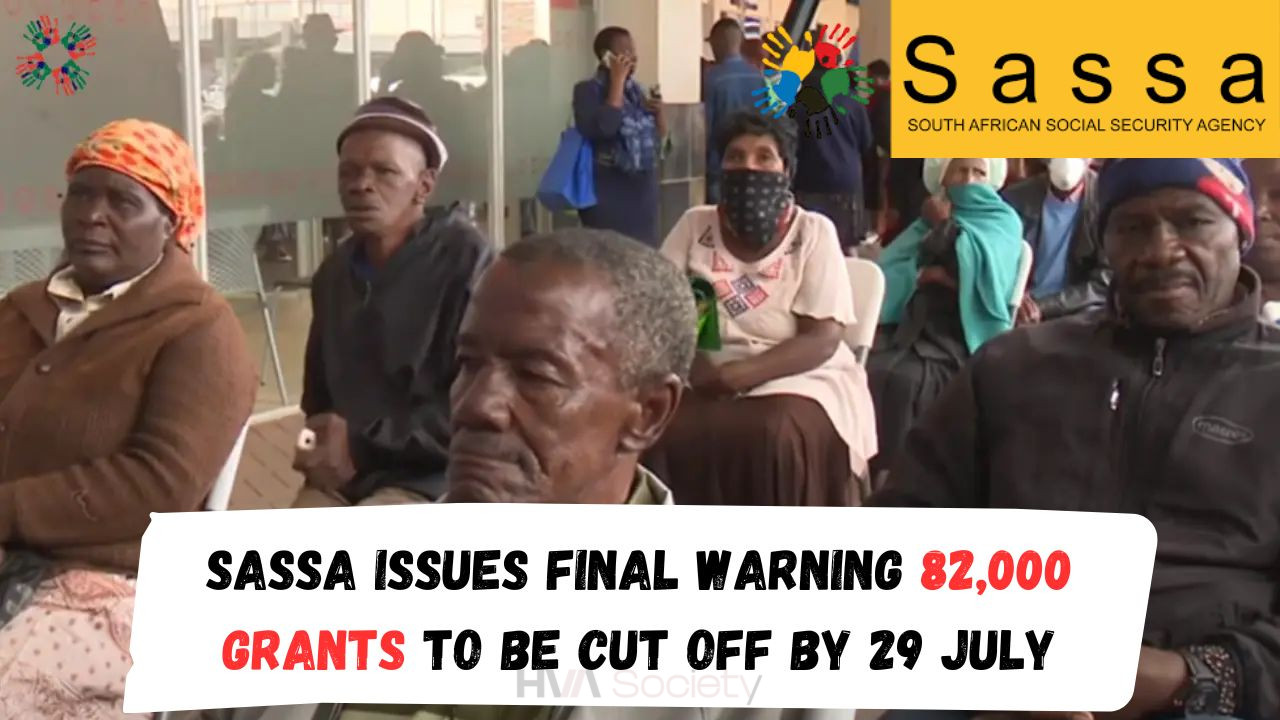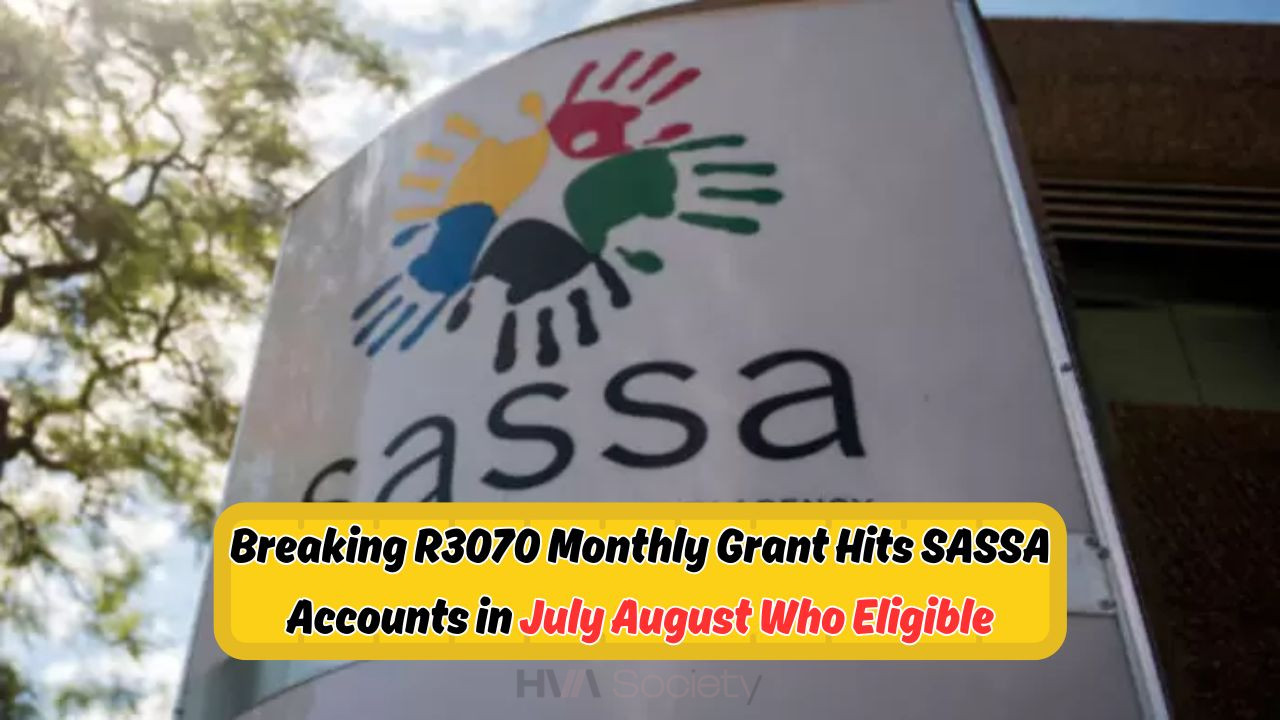July 2025 Universal Income Scheme in South Africa: July 2025 marks a significant shift in South Africa’s social welfare landscape as the nation says goodbye to the SRD R370 grant and welcomes a new R1,200 Universal Income Scheme. This groundbreaking initiative aims to provide a more sustainable and inclusive financial support system for all South Africans, addressing the economic challenges faced by many households. With this change, the government seeks to offer a universal safety net that ensures basic financial stability for every citizen, reflecting a commitment to reducing poverty and inequality across the nation.
Transitioning from SRD R370 to the New Scheme
The move from the SRD R370 grant to the R1,200 Universal Income Scheme represents a major policy shift aimed at enhancing the social security framework in South Africa. This transition is expected to bring about several positive changes, particularly for low-income households. The increased financial support is designed to cover the essential needs of families, providing a steady income that can help alleviate poverty and improve quality of life. The government has emphasized the importance of this scheme in fostering economic resilience and social inclusion.
- Provides universal coverage to all citizens
- Increases monthly support from R370 to R1,200
- Aims to reduce poverty and inequality
- Enhances economic stability for low-income households
- Encourages financial independence
- Part of a broader social welfare reform
- Accessible to everyone, regardless of employment status
Benefits of the R1,200 Universal Income Scheme
| Aspect | SRD R370 | R1,200 Universal Income |
|---|---|---|
| Monthly Amount | R370 | R1,200 |
| Coverage | Selective | Universal |
| Impact on Poverty | Limited | Significant |
| Economic Stability | Minimal | Enhanced |
| Social Inclusion | Restricted | Broader |
| Administrative Efficiency | Complex | Simplified |
| Long-term Sustainability | Challenging | Promising |
| Implementation | Ongoing | July 2025 |
Economic Implications of the New Universal Income
The introduction of the R1,200 Universal Income Scheme is poised to have far-reaching economic implications for South Africa. By providing citizens with a reliable source of income, the government aims to stimulate economic activity and increase consumer spending. This financial boost can lead to greater demand for goods and services, potentially resulting in job creation and economic growth. Additionally, the scheme is expected to reduce the burden on other social services, as individuals and families become more financially independent.
 Act Fast: SASSA to Suspend 82,000 Grants by 29 July Without Your Documents - Just 3 Days Left!
Act Fast: SASSA to Suspend 82,000 Grants by 29 July Without Your Documents - Just 3 Days Left!
- Boosts consumer spending
- Potentially increases job creation
- Reduces reliance on other social services
- Encourages economic growth
- Supports long-term financial planning for families
- Enhances investment in education and healthcare
- Fosters a more equitable society
Implementation and Challenges Facing the New Scheme
While the R1,200 Universal Income Scheme is a promising development, its implementation is not without challenges. Ensuring the effective distribution of funds to all eligible citizens requires a robust administrative infrastructure. The government must work closely with various stakeholders to streamline processes and minimize bureaucratic hurdles. Additionally, securing the necessary funding for this ambitious initiative will be crucial to its success. Policymakers must carefully balance the budget to sustain the program without compromising other critical areas such as education and healthcare.
- Requires an efficient administrative system
- Needs collaboration with stakeholders
- Demands careful budget management
- Must address potential bureaucratic challenges
- Ensures equitable access to all eligible citizens
Public Reception and Feedback on the Scheme
The public’s response to the R1,200 Universal Income Scheme has been overwhelmingly positive, with many South Africans expressing support for the increased financial assistance. Social media platforms and community forums have been abuzz with discussions about the potential benefits of the program. However, some concerns remain regarding the scheme’s long-term sustainability and the impact on the country’s fiscal health. It is essential for the government to maintain open lines of communication with the public, addressing concerns and providing regular updates on the program’s progress.
| Aspect | Public Reception | Concerns | Government Response |
|---|---|---|---|
| Financial Assistance | Positive | Long-term sustainability | Reassurances on funding |
| Economic Impact | Optimistic | Fiscal health | Balanced budgeting |
| Social Inclusion | Supportive | Equitable access | Improved infrastructure |
| Implementation | Hopeful | Bureaucratic challenges | Streamlined processes |
| Communication | Encouraged | Lack of updates | Regular briefings |
| Transparency | Valued | Openness | Continued dialogue |
Key Takeaways of the New Universal Income Scheme
The R1,200 Universal Income Scheme is set to transform South Africa’s social welfare landscape, offering a consistent financial safety net for all citizens. As the nation prepares for this transition, it is essential to focus on the program’s implementation and address any challenges that may arise. By fostering collaboration between government, stakeholders, and the public, South Africa can ensure the success of this historic initiative.
- Provides substantial financial support
- Universal coverage for all citizens
- Stimulates economic growth
- Challenges include administrative efficiency
Future Prospects of South Africa’s Universal Income Scheme
The introduction of the R1,200 Universal Income Scheme marks a new era for social welfare in South Africa. Looking ahead, the scheme holds the promise of reducing poverty and inequality, fostering economic resilience, and supporting long-term financial independence. As the country adapts to this change, there is potential for further innovations in social policy that build on this foundation, ensuring a brighter future for all South Africans.
| Aspect | Current Status | Future Outlook |
|---|---|---|
| Financial Support | Increased | Stable and sustainable |
| Economic Impact | Positive | Growth-oriented |
| Social Inclusion | Broadened | Comprehensive |
| Policy Innovation | Beginning | Expansive |
| Public Engagement | Active | Continued |
FAQs: Understanding the Universal Income Scheme
What is the R1,200 Universal Income Scheme?
The R1,200 Universal Income Scheme is a nationwide initiative by the South African government to provide every citizen with a consistent monthly financial support of R1,200, replacing the previous SRD R370 grant.
Who is eligible for the Universal Income Scheme?
All South African citizens are eligible for the Universal Income Scheme, ensuring comprehensive coverage without the need for selective criteria.
How does the Universal Income Scheme impact the economy?
The scheme aims to boost consumer spending, stimulate economic growth, and reduce reliance on other social services by providing a stable income to all citizens.
What challenges does the implementation of the scheme face?
Challenges include ensuring administrative efficiency, securing necessary funding, and addressing any bureaucratic hurdles that may arise during implementation.
How can the public stay informed about the scheme?
The government will provide regular updates and maintain open communication channels with the public to ensure transparency and address any concerns.







